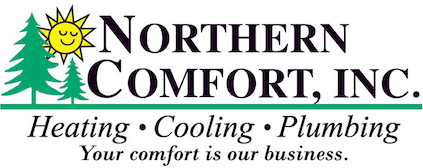
We spend a good majority of our time indoors. In fact, the Environmental Protection Agency (EPA) has approximated being within a building accounts for 90% of our schedule. However, the EPA also has determined your indoor air can be three to five times worse than outdoors.
That’s because our houses are securely sealed to increase energy efficiency. While this is great for your energy expenses, it’s not so good if you’re among the 40% of the population with respiratory allergies.
When outdoor ventilation is restricted, pollutants like dust and volatile organic compounds (VOCs) might get stuck. Consequently, these pollutants can aggravate your allergies.
You can boost your indoor air quality with clean air and routine cleaning and vacuuming. But if you’re still having problems with symptoms while you’re at your house, an air purifier may be able to help.
While it can’t get rid of pollutants that have landed on your furniture or flooring, it might help clean the air circulating across your home.
And air purification has also been scientifically confirmed to help lower some allergic symptoms, according to the American College of Allergy, Asthma and Immunology. It might also be useful if you or a family member has a lung condition, including emphysema or COPD.
There are two options, a portable air purifier or a whole-home air purifier. We’ll discuss the distinctions so you can figure out what’s correct for your residence.
Whole-House Air Purifier vs. Portable Air Purifiers
A portable air purifier is for a lone room. A whole-house air purifier works alongside your heating and cooling system to clean your complete house. Some types can purify by themselves when your heating and cooling system isn’t operating.
What’s the Best Air Purifier for Allergies?
Look for an option with a High Efficiency Particulate Air (HEPA) filter. HEPA filters are placed in hospitals and offer the greatest filtration you can buy, as they catch 99.97% of particles in the air.
HEPA filters are even more beneficial when installed with an ultraviolet (UV) germicidal light. This mighty mixture can eliminate dust, dander, pollen and mold, all of which are standard allergens. For the ultimate in air purification, evaluate a system that also has a carbon-based filter to decrease household vapors.
Avoid using an air purifier that makes ozone, which is the main component in smog. The EPA advises ozone may aggravate respiratory issues, even when emitted at minor settings.
The Allergy and Asthma Foundation of America has compiled a checklist of questions to consider when getting an air purifier.
- What can this purifier remove from the air? What doesn’t it take out?
- What’s its clean air delivery rate? (A bigger number means air will be purified more rapidly.)
- How regularly does the filter or UV bulb need to be changed]? Can I complete that by myself?
- How much do spare filters or bulbs cost?
How to Decrease Seasonal Allergy Symptoms
Want to have the {top|most excellent|best] performance from your new air purification system? The Mayo Clinic advises completing other steps to reduce your exposure to things that can trigger seasonal allergies.
- Stay in your home and keep windows and doors sealed when pollen counts are high.
- Have someone else mow the lawn or pull weeds, since these jobs can irritate symptoms. If you must do these jobs yourself, you might want to consider wearing a pollen mask. You should also bathe immediately and put on new clothes once you’re completed.
- Avoid hanging laundry outside.
- Use your air conditioner while at your house or while you’re on the road. Consider using a high efficiency air filter in your residence’s HVAC system.
- Even out your home’s humidity saturation with a whole-house dehumidifier.
- Hardwood, tile or linoleum are the best flooring kinds for decreasing indoor allergens. If your residence has carpet, install a HEPA filter on your vacuum cleaner.
Let Our Professionals Take Care of Your Indoor Air Quality Needs
Want to move forward with adding a whole-house air purifier? Give our professionals a call at 507-387-6596 or contact us online to request an appointment. We’ll help you locate the right equipment for your family and budget.


